
Research Resources
Directory of NIH Funded Members
| Name | Institution | NIH Award Received | Award Title | Abstract Link |
|---|---|---|---|---|
| Kavita Babu | University of Massachusetts | R21 | Research Grant | Read Abstract |
| Vik Bebarta | University of Colorado | U5 | Research Grant | Read Abstract |
| Neal Benowitz | University of California San Francisco | R01 U01 | Research Grant | Read Abstract Read Abstract |
| Steven B. Bird | University of Massachusetts | U1 | Research Grant | Read Abstract |
| Ed Boyer | Harvard Medical School | R01 U01 | Research Grant | Read Abstract Read Abstract |
| Stephanie Carreiro | University of Massachusetts | K3 | Research Grant | Read Abstract |
| Peter Chai | Harvard Medical School | K4 | Research Grant | Read Abstract |
| David Jang | University of Pennsylvania | K4 R01 | Research Grant | Read Abstract Read Abstract |
| Alex F. Manini | Icahn School of Medicine Mount Sinai | R01 R01 | Research Grant | Read Abstract Read Abstract |
| Andrew A. Monte | University of Colorado | R35 | Research Grant | Read Abstract |
| Paul Pentel | University of Minnesota | U01 | Research Grant | Read Abstract |
| Lawrence Quang | Arkansas Children’s Hospital | K4 | Research Grant | Read Abstract |
| Robert Wright | Icahn School of Medicine Mount Sinai | R01 P3 P3 | Research Grant P Series P Series | Read Abstract Read Abstract Read Abstract |
Research Mentor List
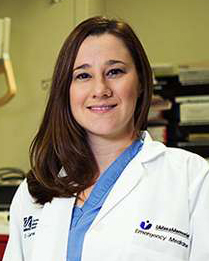
Stephanie Carreiro, MD
Assistant Professor
University of Massachusetts Medical School
stephanie.carreiro@umassmed.edu
Mentor Speciality: General Career Development, Research, Grant Writing
Stephanie Carreiro, MD, is an emergency medicine physician and medical toxicologist. She is a 2009 graduate of New York Medical College and completed her Emergency Medicine Residency in 2013 at Brown University. She completed a medical toxicology fellowship at the University of Massachusetts in 2015 and remained on faculty as an Assistant Professor of Emergency Medicine. Dr. Carreiro has a passion for novel translational research, which she first discovered during residency while evaluating novel antidotes for cardiotoxicity in animal models. She now focuses on clinical research in substance use disorder space, with a particular focus on the current opioid epidemic. Her current research interests include the utilization of novel technologies and serum biomarkers to evaluate drug toxicity, substance abuse, and addiction. Dr. Carreiro is also currently pursuing a PhD in Biomedical Sciences from the University of Massachusetts Medical School.
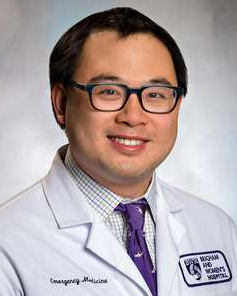
Peter Chai, MD
Assistant Professor
Brigham and Women’s Hospital
pchai@bwh.harvard.edu
Mentor Speciality: Academic Careers, Atypical Career Pathways, Industry, Medical Publishing, Research, Technology
Dr. Peter R Chai is interested in the development of technologies to detect changes in human health with a focus in medication adherence for HIV prevention, detection of substance use in communities, and sensors and devices to improve hospital workflow.
He is funded by independent research grants from Gilead Sciences as well as a NIDA K23 to investigate the use of real-time adherence monitoring using ingestible sensors to measure Pre-exposure Prophylaxis for HIV using once-daily Emitricitabine/Tenofovir. This grant also develops an innovative behavioral intervention that teaches adherence skills responding to nonadherence events detected through ingestible sensors.
Dr. Chai also collaborates with investigators at the Massachusetts Institute of Technology where he is an affiliate research scholar to develop next-generation long-term ingestible sensors and drug delivery packages surrounding HIV prevention and substance use disorder treatment. He additionally collaborates with the Petrie Flom Center for Health Law Policy, Biotechnology and Bioethics at Harvard Law School on legal and ethical implications of electronic adherence monitoring. His work on ingestible sensors has led to speaking invitations at major HIV prevention and technology conferences, and publications in the Journal of Medical Internet Research. While ingestible sensors can measure medication adherence and substance use on individual levels, alternative techniques are required to inform substance use interventions on a community level. Dr. Chai, therefore, develops robotic methods to sample sewer wastewater measuring concentrations of human exposure to opioids and naloxone, and is developing this technology to provide community-level opioid use data to policymakers and researchers.
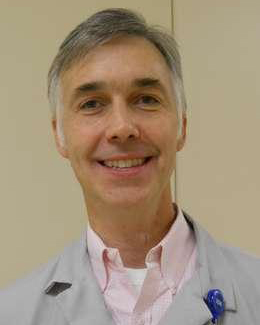
Mark Mycyk, MD
Editor-in-Chief, Journal of Medical Toxicology
Cook County Health / Toxikon Consortium
mycyk.mark@gmail.com
Mentor Speciality: General Career Development, Medical Publishing, Research
Dr. Mycyk found his way to medicine after obtaining a degree in English and American Literature from Harvard University. He completed a residency in emergency medicine at Boston City Hospital/Boston Medical Center, a fellowship in medical toxicology at the Toxikon Consortium and Cook County Hospital in Chicago, and currently serves as the Research Director at the Toxikon Consortium. His current scholarly work focuses on NEW (non-traditional, emerging, and web-based) drugs of abuse and innovative ways of disseminating scholarship.
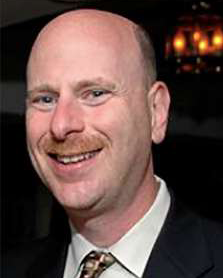
David Tanen, MD
Professor/Senior Physician
Harbor-UCLA Medical Center
dtanen@emedharbor.edu
Mentor Speciality: Atypical Career Pathways, Developing National Leadership Skills, Education, General Career Development, Global Toxicology, Research, Education
David Tanen was raised in North Massapequa, NY and went to Harvard University for college where he studied chemistry and physics. He did my first two years of medical school at NYU, and then spent a year at the NIH on a Howard Hughes Medical Institute Research Fellowship where he studied psychopharmacology, before completing medical school at UCLA. Having been on a military scholarship during medical school, he came on active duty and did his internship in Internal Medicine at Bethesda Naval Hospital, then a two year GMO (General Medical Officer) tour with the Marines at Camp Pendleton, his Emergency Medicine residency at Naval Medical Center San Diego, and a Medical Toxicology fellowship at Good Samaritan in Phoenix, AZ. He is board-certified in Emergency Medicine and Medical Toxicology.
As a military Emergency Physician and Medical Toxicologist, Dr. Tanen completed multiple deployments around the world including a six-month Western Pacific cruise to Mogadishu, Somalia, and Saudi Arabia in 1994, two tours in Iraq (2003, 2004-2005), and two tours on the Navy’s hospital ships completing humanitarian missions in Central and South America, and Southeast Asia (2011, 2012). He also served as Research Director, Associate Residency Director, and Residency Program Director during his time at Naval Medical Center San Diego (2000-2012). He also served as volunteer faculty with the Medical Toxicology fellowship at UCSD.
As a retired Navy Captain, Dr. Tanen joined the faculty at Harbor-UCLA in 2013 as a Professor and Associate Residency Director. His research interests over the years have included crotaline envenomations, cyanide toxicity, mushroom poisoning, iron poisoning, neurologic emergencies (SAH, migraines), environmental emergencies, pharmacologic treatment of pain, and evaluation of the febrile infant. He has also had the opportunity to lecture around the world on disaster relief, medical toxicology, and the development of emergency medicine.
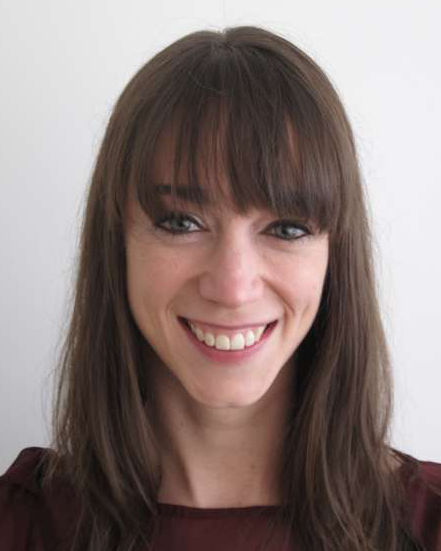
Meghan Spyres, MD
Banner University Medical Center Phoenix
mspyres@gmail.com
Mentor Speciality: Developing Inpatient/Outpatient Services, Developing National Leadership Skills, Medical Publishing, Research
Meghan Spyres attended medical school at Columbia University College of Physicians and Surgeons in New York City and stayed in New York to attending Emergency Medicine residency at Bellevue/NYU where she was chief resident. She completed her medical toxicology fellowship training in 2016 at Banner—University Medical Center in Phoenix, Arizona and is currently Assistant Professor of Clinical Emergency Medicine at the University of Southern California. She is actively involved in research; areas of interest include rattlesnake envenomations, drugs of abuse, Free Open Access Medical Education, and the intersection of critical care and toxicology. She is co-founder of Women in Toxicology, a group that promotes women in academic medicine.
Other Resources
ToxIC Internships
Fellow-in-Training Intern Opportunity with the Toxicology Investigators Consortium (ToxIC)
EMBRS
(sponsored by ACEP)
The EMBRS workshop is specifically designed to help and improve research skills. This is a great course for young faculty, those interested in improving their skills as a researcher, and physicians who are involved in research as part of their duties. Participants are also eligible to receive an EMF/EMBRS grant based on their research grant application.
Advanced Research Methodology Evaluation and Design (ARMED)
(from SAEM)
Research course taught by emergency medicine experts.